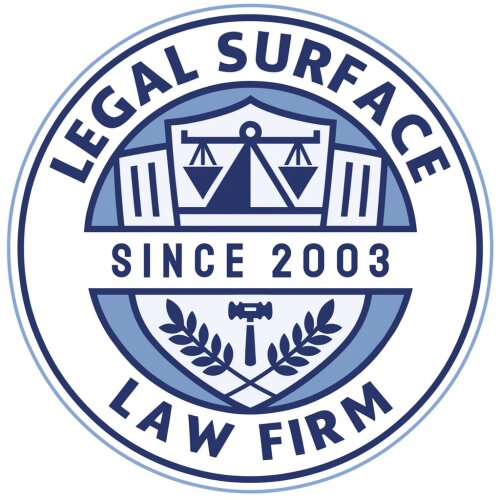Best Disability Lawyers in India
Share your needs with us, get contacted by law firms.
Free. Takes 2 min.
Or refine your search by selecting a city:
List of the best lawyers in India
About Disability Law in India
Disability law in India has evolved significantly over the years with the aim to ensure the rights and dignity of people with disabilities. Key legislation includes the Rights of Persons with Disabilities Act, 2016, which replaced the earlier Persons with Disabilities (Equal Opportunities, Protection of Rights and Full Participation) Act, 1995. The current law provides a framework to improve access to education, employment, and facilities, and to prevent discrimination against individuals with disabilities. It covers a broad range of disabilities and establishes comprehensive rights and entitlements.
Why You May Need a Lawyer
Individuals with disabilities or their families may require legal assistance in several situations, such as:
- Pursuing claims for disability benefits and entitlements.
- Handling cases of discrimination in employment or education.
- Navigating the process of applying for government schemes and accommodations.
- Ensuring compliance with accessibility standards in public spaces and employment.
- Translating complex legal terminology and processes into understandable actions.
Local Laws Overview
The Rights of Persons with Disabilities Act, 2016, plays a critical role in shaping disability law in India. Key aspects include:
- Provision of equal opportunities and non-discrimination in various fields such as employment, education, and healthcare.
- Recognition of 21 types of disabilities, including intellectual, physical, and sensory impairments, and chronic neurological conditions.
- The mandate for government and private entities to adhere to specific accessibility standards.
- Reservation of seats in government educational institutions and employment.
- Guidance for establishments to ensure reasonable accommodation and supportive measures for persons with disabilities.
Frequently Asked Questions
What is the Rights of Persons with Disabilities Act, 2016?
This is the primary legislation in India that provides comprehensive rights and protections for persons with disabilities. It aims to ensure equality and opportunities and prohibits discrimination in areas like employment, education, and accessibility.
How does the law define disability in India?
The law recognizes 21 disabilities, including blindness, low vision, hearing impairment, locomotor disability, mental illness, autism, and multiple sclerosis, among others.
Are persons with disabilities entitled to reservations in education and jobs?
Yes, the law provides for reservations in government educational institutions and jobs, with a specified percentage of vacancies set aside for persons with disabilities.
What is the process for claiming disability benefits in India?
The process involves obtaining a disability certificate from a designated medical authority, which can then be used to apply for various entitlements and benefits from relevant government schemes.
What rights do persons with disabilities have regarding accessibility?
The law mandates that public buildings, transportation, and information services be made accessible, and reasonable accommodations be provided to individuals with disabilities.
How can a person with a disability protect themselves from discrimination?
If a person with a disability faces discrimination, they can file a complaint with the appropriate government authority or seek legal recourse through a lawyer specializing in disability law.
Are there any penalties for non-compliance with disability laws in India?
Yes, the law prescribes penalties, including fines, for persons and organizations that fail to comply with regulations concerning accessibility and non-discrimination.
Can legal assistance be obtained for housing rights regarding disability?
Yes, legal assistance can be sought to ensure accommodation providers are adhering to laws relating to accessibility and are not discriminating based on disability status.
Are there any support services for children with disabilities in India?
The legislation mandates inclusive education systems and provides for children with disabilities to have equal access to schooling and support services.
How often are disability laws reviewed or updated in India?
While there is no fixed schedule, disability laws are periodically reviewed and updated to reflect changes in social attitudes, new understandings of disabilities, and international best practices.
Additional Resources
For more information and assistance, individuals can reach out to the following:
- Department of Empowerment of Persons with Disabilities (DEPwD) - A central government department responsible for the welfare of persons with disabilities.
- National Trust for the Welfare of Persons with Autism, Cerebral Palsy, Mental Retardation, and Multiple Disabilities - An organization offering support and resources.
- Local State Disability Commissioners - Provide guidance on rights and facilitate dispute resolution for persons with disabilities.
- Disability rights NGOs and advocacy groups that can offer legal aid and counselling.
Next Steps
If you need legal assistance regarding disability in India, consider the following steps:
- Consult with a lawyer who specializes in disability law to understand your rights and options.
- Gather all relevant documentation, including medical records, disability certificates, and any correspondence related to your case.
- Contact local advocacy groups or NGOs for additional support and guidance.
- Visit government websites or offices relevant to disability welfare for more information and to begin the application processes for any available benefits.
Lawzana helps you find the best lawyers and law firms in India through a curated and pre-screened list of qualified legal professionals. Our platform offers rankings and detailed profiles of attorneys and law firms, allowing you to compare based on practice areas, including Disability, experience, and client feedback.
Each profile includes a description of the firm's areas of practice, client reviews, team members and partners, year of establishment, spoken languages, office locations, contact information, social media presence, and any published articles or resources. Most firms on our platform speak English and are experienced in both local and international legal matters.
Get a quote from top-rated law firms in India — quickly, securely, and without unnecessary hassle.
Disclaimer:
The information provided on this page is for general informational purposes only and does not constitute legal advice. While we strive to ensure the accuracy and relevance of the content, legal information may change over time, and interpretations of the law can vary. You should always consult with a qualified legal professional for advice specific to your situation.
We disclaim all liability for actions taken or not taken based on the content of this page. If you believe any information is incorrect or outdated, please contact us, and we will review and update it where appropriate.
Browse disability law firms by city in India
Refine your search by selecting a city.














